NCISummits News and Current Events

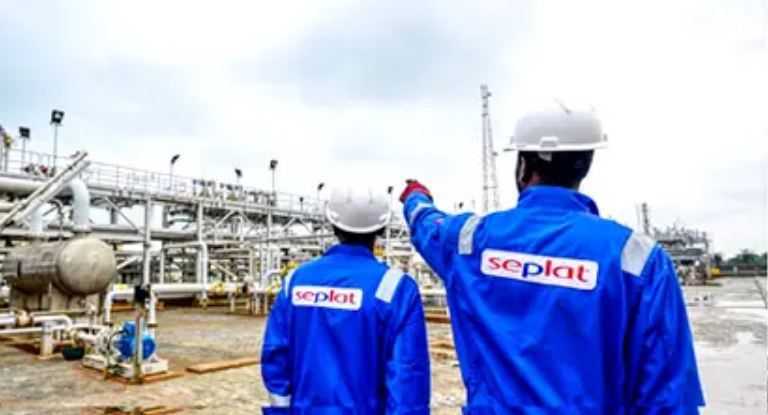
Seplat
Seplat Energy Plc and other stakeholders have called on the global community to embrace gas, which Nigeria and other African nations have in commercial reserves, as a vehicle to achieve its energy transition.
Speaking at the ongoing Africa Oil Week, in Cape Town, South Africa, Chief Executive Officer, of Seplat Energy Plc, Roger Brown, said Africa’s gas sector presents an enormous opportunity for developed nations to diversify their energy suppliers in the face of instability in the European energy market, while still meeting their environmental responsibilities.
He said investment in Africa’s energy industry would help the developed nations, improve their energy security at little cost to the environment while complying with all their Environmental, Social, and Governance, ESG, requirements.
Credit: Vanguard News

FG Seeks Foreign Investments to Develop Transport Infrastructure
By Adaku Onyenucheya
10 October 2022 | 2:54 am
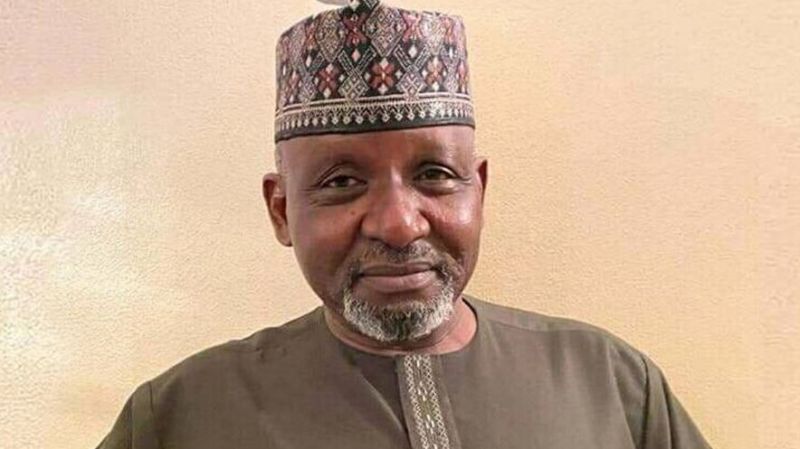
Minister of Transportation, Mu’azu Sambo
The Federal Government has said the transport sector’s projected five percent increase in the contribution to the national Gross Domestic Product (GDP) in the next five to 10 years may be stalled as the country cannot currently meet its transport needs, despite the exponential growth in the demand for transport services.
The Minister of Transportation, Mu’azu Sambo, who disclosed this at the Nigerian International Economic Partnership Forum held in New York, said poor maintenance and insufficient investments have put an enormous strain on transport infrastructure and services in the country.
He said as the government makes strives to ensure infrastructural projects are viable within a stable financial ecosystem, there are priority areas in the maritime, inland waterways, and rail subsectors of the transportation sector.
Sambo, who delivered a paper on ‘Financing Nigeria’s Transport Infrastructure,’ said the maritime subsector, which hosts six major seaports engaged in international maritime trade, namely Tincan, Apapa, Calabar, Onne Port, Portharcourt, and Warri, had suffered infrastructure decay since their various dates of operation.
He said the seaports have suffered dilapidation and decay over the years and now require massive capital investments for upgrades and rehabilitation.
The minister said there is a need for urgent investment in Apapa and Tincan Island ports, which account for about 70 percent of the nation’s maritime trade, as well as Calabar and Warri ports, which present investment opportunities in dredging, to maintain regular draught of about 7.5metres.
He also emphasised the need for deep seaports to attract the biggest shipping vessels to the country, which has necessitated the desire to create deep sea ports with an average draught of 15 metres.
Sambo called for investment in the Ibom deep sea port in Akwa Ibom, which is in the fifth stage of development, as well as the Badagry deep sea port that has recently been approved by the Federal Executive Council (FEC) for construction by international private investors for 45 years Build, Own, Operate and Transfer (BOOT) basis.
He said other ongoing initiatives for deep seas ports include Bonny and Bakassi, which present themselves as opportunities for private capital.
Sambo also called for private capital investments in inland dry ports and rail networks targeted at manufacturing, agriculture, and solid minerals to decongest seaports, improve supply chain logistics and bring shipping activities closer to shippers in the hinterland.
Speaking on the inland waterways subsector, the minister said: “While the Onitsha port has already been concessioned to private investors, other opportunities in this subsector include the concession of Oguta, Baro, and Lokoja ports; operation of the ferry (passenger) and freight (cargo) services along the inland waterways corridor; development of additional river ports and jetties along other inland waterways navigable routes on PPP arrangements and the development of tank farms along the inland waterway corridors to leverage the waterways for the carriage of petroleum and other bulk liquid cargoes to the hinterland.”
Sambo also noted that key areas in the transport sector that need immediate attention include, the completion of rehabilitation of all narrow-gauge rail lines and the construction of standard gauge rail lines for the carriage of goods and passengers in line with the 25 – year Railway Master Plan.
Others, he said, are Public-Private Partnerships for the development of Vehicle Transit Areas (VTAs) to facilitate both local and international trade, as well as effective and sustainable channel management, security, and safety for ports and inland waterways.
Sambo also added the implementation of the ECOWAS protocol on Trade Facilitation and the Africa Continental Free Trade Area Agreement (AfCFTA), while promising a return on investment as well as a guaranteed and secure environment for investors.
Speaking on transport infrastructure financing strategies, the minister said, “Infrastructure is vital for the long-term growth and competitiveness of countries worldwide. It is however capital intensive as various national governments are facing constraints in developing and funding infrastructure projects. Likewise, the Nigerian government is increasingly exploring alternative sources of finance for infrastructure development.
“Public Private Partnerships have proven a viable option to unleash unprecedented infrastructure growth and create a balance between state ownership and privatisation,” he said.
Credit: THE GUARDIAN NIGERIA NEWS

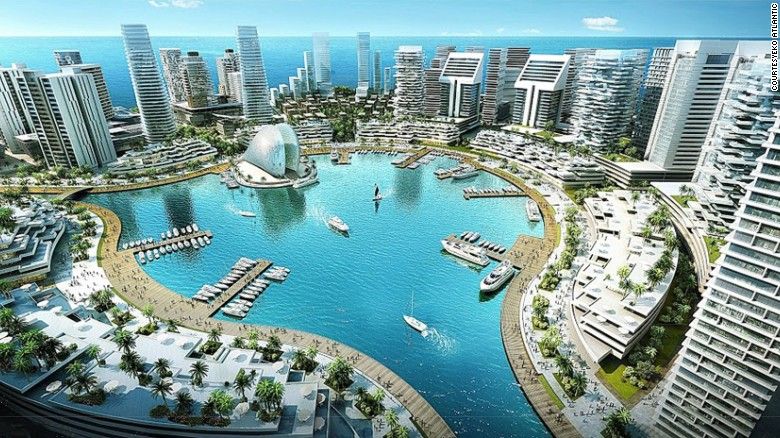 Eko Atlantic, Nigeria: Nigeria’s ambitious multi-billion dollar project aims to transform Lagos, the country’s most populated city. PHOTO | COURTESY
Eko Atlantic, Nigeria: Nigeria’s ambitious multi-billion dollar project aims to transform Lagos, the country’s most populated city. PHOTO | COURTESY
Nairobi. Africa is projected to maintain its streak as the fastest urbanising region in the world, with new forecasts showing its cities and major towns will be home to an additional 866 million people in just 30 years. To sustain the cities, African universities are engineering tech solutions.
Smart city technologies are being touted as a solution for Africa’s urban planning challenges as the continent’s cities and towns record the world’s highest pace of population growth. American financial information services firm, Fitch Group forecasts urban residents in Africa will reach 817 million in 2030, and 1.47 billion by 2050, up from around 603.5 million people currently living in cities and towns.
Percentage-wise, the continent’s urban population is projected to rise from 41.8 percent of the total population this year to 58 percent by 2050.
Fitch attributes the rapid pace of urbanisation in Africa not only to rural-to-city migration and in-city population growth but also to the modernisation of previously rural population clusters –– where rural areas transform themselves into urban spaces as a result of natural population growth and accumulated density.
“Populations continue to prefer migrating to or staying in the larger, more established cities with better infrastructure, more vibrant commercial hubs and proximity to ports and economic opportunities,” reads the report in part.
“We believe that across the region, countries will seek to increase investment in infrastructure, particularly through expanding and connecting existing cities and towns, through strengthening public-private partnerships and increased use of technology-driven solutions.”
West Africa will register the strongest urban population growth in the forecast period, with cities like Abidjan and Lagos picking up several million more inhabitants.
Moreover, the projected population explosion in urban clusters will create more demand for goods and services and accelerate tech innovation in Africa.
Demand will be higher in consumer-facing sectors such as food and drink, retail, autos, agribusiness, healthcare, ICT as well as industries such as power and construction.
“We believe that this rapid growth in urban populations will also see an increased focus on the use of new technologies and leapfrog innovations as well as sustainability, particularly through growing the renewable power sector, emissions reduction efforts, and increasing restrictions on single-use plastics,” Fitch said.
Already, this focus on future solutions is pushing governments to earmark funds for research. One example is a project dubbed the Africa Cities Lab (ACL) whose goal is to create a digital education platform for urban professionals, with free content focused on urban planning and urban development in Africa. (Bird)
(ACL is a joint initiative led by Switzerland’s École Polytechnique Fédérale de Lausanne (EPFL), the Kwame Nkrumah University of Science and Technology (Ghana), and Morocco’s Mohammed VI Polytechnic University.
Other partners include Sèmè City (an innovation campus in Benin), the University of Carthage, the University of Cape Town, and the University of Rwanda.
Credit: THE CITIZEN

$70 Million Oshodi Interchange Has Been Successful, Say Officials
By Adaku Onyenucheya
 Oshodi interchange…a signpost of urban regeneration in Lagos
Oshodi interchange…a signpost of urban regeneration in Lagos
Lagos has loads of ongoing infrastructure and building projects, but the $70 million Oshodi Transport Interchange is a little special- it transformed the notorious haven for miscreants into a massive urban renewal scheme.
Described as one of its kind in Africa, and similar to Victoria Terminus in London, in the United Kingdom, officials say, the interchange is a people-oriented project that would help at least one million residents commute easily daily.
The project embarked upon through a Public-Private Partnership (PPP) initiative between the Lagos State Government via Ibile Holdings, Translink Capital Development Limited, and constructed by an indigenous construction firm, Planet Projects Limited was completed recently.
Oshodi currently accommodates about a million pedestrians and 100,000 passengers who utilize the 13 parks on a daily basis. Over the years, this has caused chronic traffic, overcrowding as well as an unhygienic environment, according to Lagos State Government.
The concept of the Oshodi regeneration plan is premised on a three-pronged approach including urban renewal, environmental regeneration as well as transformation, and security.
Each bus terminal consists of 30,000 square metres and includes standard facilities such as waiting areas, loading bays, ticketing stands, driver lounges, parking areas, and restrooms among others.
The government seeks to transform Oshodi into a world-class Central Business District (CBD) with business, travel, and leisure activities conducted in a serene, secure, clean, orderly and hygienic environment, comparable with other transport terminals around the world.
Officials disclosed recently during a facility tour of the interchange that the redevelopment of Oshodi has greatly enhanced the security of lives and properties in the neighborhood.
Sources told The Guardian that operations at the transport Interchange were earmarked to commence on April 1, 2020, but for COVID-19, which caused a lockdown and weakened the economy.
“For Terminals one and two, it was earmarked to start operations on April 1, but because of the Covid-19, we are also waiting for government directives to ease interstate lockdown. Maybe as soon as the President or Presidential Taskforce gives a go-ahead for the easing of this lockdown for interstate movement, immediately Terminal one operation will commence.
“Terminal two essentially serves the Abule Egba BRT route and other routes going to Apapa – Mile 2. Right now, the BRT bus operations should start after the commissioning. We are hoping and from the assurances, we have also gotten from the contractor, that in the next month, the whole construction along that BRT route should have been completed.
“We are believing that if that is completed by next month, tops by July the BRT bus operations should start. But of course, these things are dependent on government regulations and other protocols. If government commissions the BRT route, give and take some few weeks or months, this terminal should come upstream.”
They debunked claims that the interchange is a white elephant project. “Terminal three started operations on May 2, 2019, which is one year today. Terminal two would have started on April 1, 2020. If the government gives directives that terminal operations and interstate operations should stop, who are we to violate those rules?
“Terminal two is a BRT service terminal, so if the BRT operation or construction has not finished, there is no how you can allocate somebody else to use that terminal. The same with terminal two, as soon as the BRT route is completed, immediately its operation will start. This project is not abandoned.
“We already had a full agreement with the stakeholders to start operations, but until government lifts the interstate lockdown terminal one operation will not start. Terminal three has moved over two million passengers.”
On the issue of vandalisation, The Guardian learned that security measures at the interchange are optimum, as the Police taskforce and other security personnel have been on the ground to eradicate security threats and ensure safety.
Credit: THE GUARDIAN NIGERIA NEWS

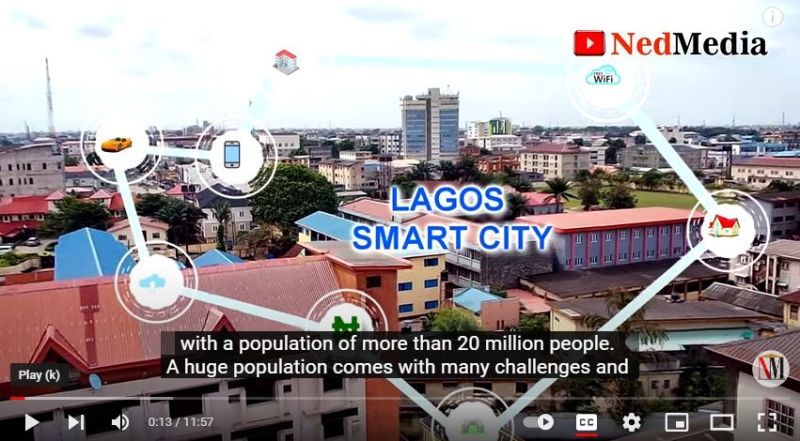 To Build Largest Tech Hub In West Africa + ₦250m Startup Seed Capital
To Build Largest Tech Hub In West Africa + ₦250m Startup Seed Capital
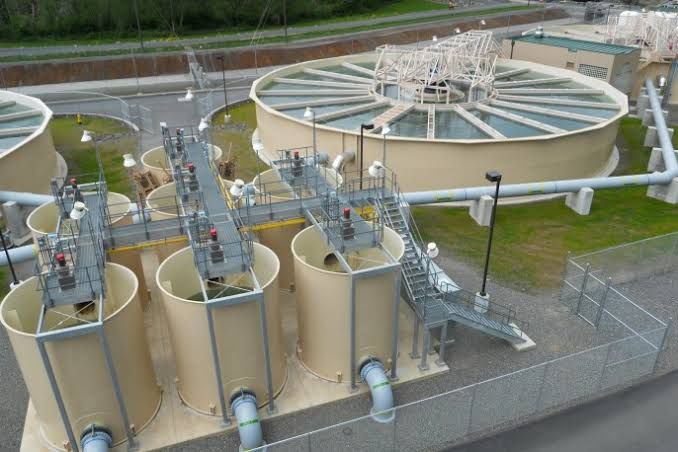
Published By: Olufunmilola Olukomaiya
31st January 2019
Stakeholders participating in the National Summit on the Human Right to Water in Abuja on Wednesday have called for massive investment in water infrastructure by African governments.
The advice in a communiqué issued in Abuja at the end of the summit by the Secretary, Communiqué Committee, Mr. Jakpor Philip, disclosed that this would make clean public water available and accessible to the citizens.
The summit was organised by the Environmental Rights Action/Friends of the Earth Nigeria, an NGO, with the theme: Nigeria’s Water Emergency: From Resistance to Real Solutions against Corporate Control.
It said that African governments should invest in public infrastructure and embrace democratic, participatory and transparent management of water investments.
The communiqué underscored the need for comprehensive data on both water infrastructure investment and access to aid planning for now and the future.
It also called for the review of the National Water Policy to make it mandatory for all states to collaborate with local governments to ensure adequate funding for water facilities resuscitation.
“The Nigerian government and governments in Africa should reject privatisation projects designed by the World Bank and its corporate partners, including the Public Private Partnership (PPP) success-myth that it is aggressively marketing in developing and poor countries.
“Relevant anti-graft agencies should probe all PPP projects, loans, and funding for the existing water system and infrastructure nationwide.
“The Freedom of Information Act (FOI) should be utilised in the public demand for information on funds sourced and approved for public water projects in the last three decades.
“There should be a national agenda for the human right to water, starting with a robust national campaign to demand a bill that protects against privatisation of water infrastructure.”
The communiqué added that the bill would advance the human right to water.
“Governments in Africa embrace democratic decision-making in addressing water shortages. Women and vulnerable groups should be accorded priority in plans to guarantee access.
“The importance of women’s leadership was shown as vital to the success of this movement.
“Participants agreed wholeheartedly that women’s leadership shall continue to be sustained and bolstered to achieve future victories,” it added.
According to the communiqué, communities at the grassroots level, including Community Development Associations should be fully integrated into campaigns on the human right to water.
CREDIT: PM News Nigeria
For Further Information Please call:
Seun Friday
+234 (0)813 886 4525 +234 (0)803 334 6387
ncisummits@gmail.com
Follow Us
